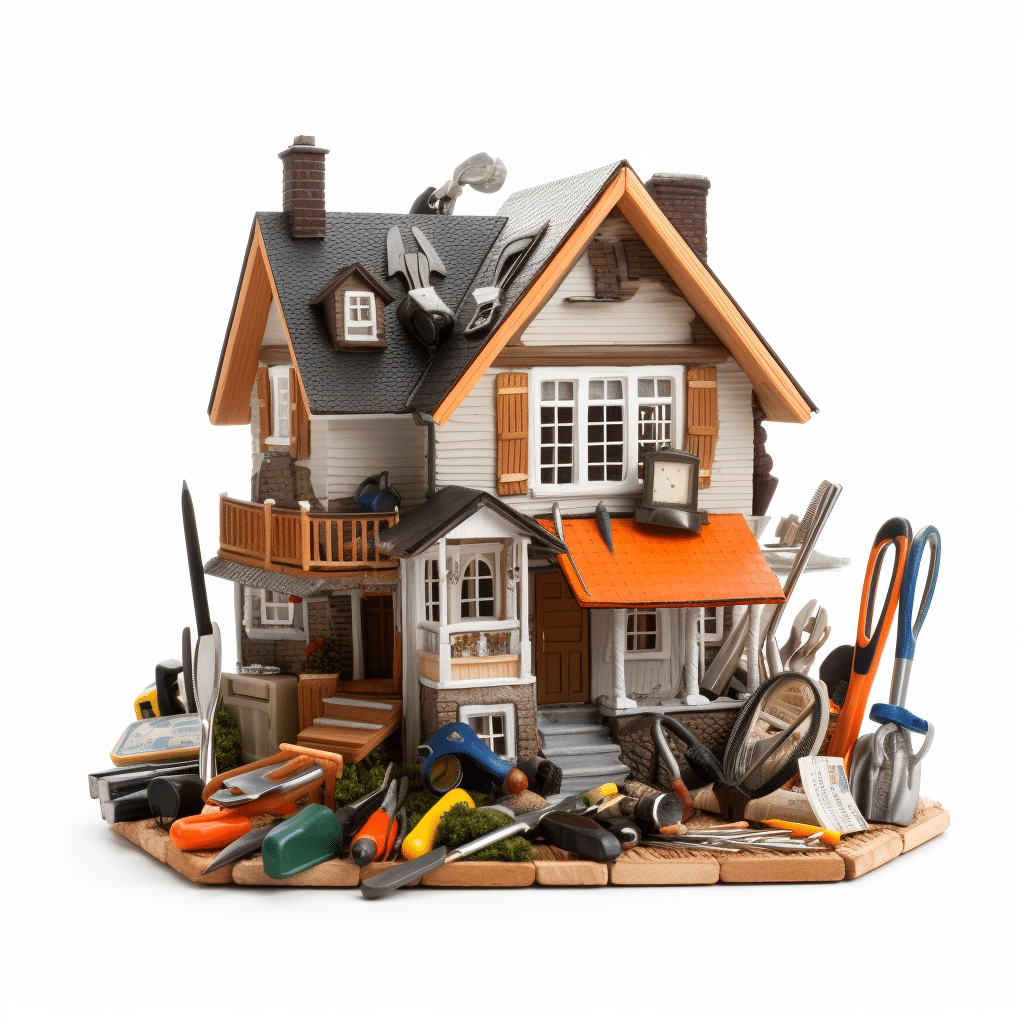The cost of home repairs is rising, so it can be irritating when your insurance company won’t cover them. How can you get the coverage you deserve? It’s all about understanding your policy. Also, document the damage thoroughly and communicate with your insurer.
Get a grip on your policy. Read the terms and conditions to know what kind of damage is covered. Knowing this will help when talking with your insurer.
Take pictures or videos of the damaged areas. Show the problems needing attention. This visual evidence can back up your claim and tell your insurer what repairs are needed.
Communicate with your insurer clearly. Make a claim letter with the damage details, mentioning any photos or videos. Explain why the repairs are essential and how your policy covers them. Keep following up with your insurer until the situation is solved.
Tip: Keep a record of all conversations with the insurance company, such as phone calls and emails. This may be useful in case of disputes during the claim process.
To sum it up, getting coverage for home repairs from your insurance company is not impossible. Understand your policy, document the damage, and communicate well with your insurer. This increases the chance of getting the coverage you need for essential repairs.
Table of Contents
Understanding your insurance policy

It is imperative to read and comprehend every section of your insurance policy. Take note of what is covered, deductibles, exclusions, and any extra endorsements. Comprehend the extent of coverage your policy provides. Be mindful of exclusions, as they can create surprises when filing a claim. Remember your deductible; what you must pay out-of-pocket before your insurance kicks in. Familiarize yourself with the claims process, ensuring you provide all documents promptly.
Additionally, stay in contact with your insurance agent or company representative regarding any changes in coverage. Make sure to review and renew your policy each year to align with any changes to your property or personal circumstances. An example of understanding insurance policies is of a homeowner who faced extensive damage due to rain. After reading their policy, they discovered their policy included flood damage coverage, allowing them to receive repairs without out-of-pocket expenses. This serves as a reminder of the importance of understanding your insurance policy.
Taking necessary steps before filing a claim
Before filing a claim for home repairs with your insurance company, take important steps. With these guidelines, you’ll have higher chances of getting the repairs covered.
- Assess the damage: Look closely at the harm done to your home. Take pictures or videos as proof for your claim.
- Review your policy: Learn the terms and conditions in your insurance policy. Figure out what kinds of damages are covered and if there are any restrictions or exclusions.
- Document expenses: Note all expenses related to the repairs, including invoices, receipts, and estimates from contractors. This will be vital when submitting your claim.
- Notify your insurer: Contact your insurance company right away to report the damages and begin the claims process. Provide them with all the necessary information and paperwork needed.
It’s key to stay in touch with your insurer throughout the process. Reply fast to any inquiries for extra info and keep communication open. Demonstrate you’re helping to solve the problem and increase the chances of a positive outcome.
Moreover, a well-documented case can boost your chances of getting coverage. Presenting clear evidence, such as photos and expense records, shows you’re credible and your claim is valid.
Following these tips can help you get coverage and make it simpler for your insurance company to understand why they should cover the repairs according to their policy. This proactive approach cuts down delays and makes it easier to restore your home.
Filing a claim with your insurance company
Notify your insurance company straight away about the damage to your house and the needed repairs. Give them all the details. If you can, take photos or videos of the damage.
Document everything that was broken and the costs associated with fixing it. The insurance company will need documentation like this to evaluate your claim.
Be cooperative with the claims process. Answer all questions quickly and provide extra info if they need it. Keep checking in on the progress of the claim.
To help get your home repairs covered, a few tips are useful:
- Read through your insurance policy closely.
- Speak and write clearly and politely.
- Explain the extent of the damages and why coverage is needed.
- Consider getting a public adjuster to help. They can fight for a better settlement from the insurance company.
By following these tips, you can maximize your chances of getting your home repairs covered by your insurance company.
Dealing with claim denials
- To dispute a claim denial, review the policy’s terms and conditions.
- Understand what is covered.
- Get any evidence to back up your claim. This can be pictures, repair estimates, etc.
- Contact the insurance company and ask for an explanation of why the claim was denied.
Note: each insurer has their own claims process. Stay in touch with the adjuster. If you think the denial was wrong, get help from a public adjuster or lawyer. They can help with the appeals process.
To get your repairs covered, know the policy, communicate with the insurer, and get professional help when needed. Persistence and thoroughness are key.
Hiring a contractor and getting estimates
- Research contractors that specialize in the repair needed.
- Get multiple estimates to compare prices, services, and timelines.
- Ask for references from previous clients to check the contractor’s trustworthiness and work quality.
- Verify that the contractor has the necessary licenses and insurance, and has experience handling insurance claims.
- Provide detailed documents like pictures or videos of the damage and repair estimates. Doing this boosts your chance of receiving coverage for repair costs.
- Pro Tip: Highlight the advantages of using professional contractors over cheaper ones when negotiating with the insurance company. Insurance companies like quality work, and may be more likely to cover the costs of reputable contractors.
Negotiating with your insurance company
It’s essential to keep a few details in mind when it comes to dealing with insurance claims. Always be proactive in your communication with the insurer, and don’t forget to seek professional help where needed.
- Review the policy. Read through it carefully to understand what is covered and what isn’t. Be familiar with the terms and conditions to be able to negotiate effectively.
- Gather evidence. Take photos or videos of the damages. Provide any needed supporting docs like receipts or repair estimates.
- Contact the insurance company. Get in touch promptly to file a claim. Have all the necessary info and evidence ready for them to assess your case accurately.
- Negotiate wisely. Be confident when presenting your case, focusing on the facts and evidence you have. Maintain a respectful tone while assertively arguing that your coverage should cover the claim.
And remember, patience and persistence are key. Keep records of all communication and follow up regularly.
One success story that shows the power of negotiation with an insurance company is Jane’s. Her house had suffered severe water damage from a burst pipe. She followed the steps above, supplying detailed documentation and negotiating firmly but respectfully. After a few talks with her insurer, they agreed to cover most of the repairs, saving her thousands of dollars.
By understanding the negotiation process and advocating for yourself confidently when dealing with insurers, you will increase your chances of having your home repairs covered. So don’t be afraid to take charge!
Finalizing the claim and starting repairs

- Gather the docs: Get all paperwork related to your claim, such as estimates, invoices, and pics of the damage. This will help things go smoothly.
- Talk to your insurance company: Stay in contact and let them know about changes or extra info. Clear communication is essential to keep everyone on the same page.
- Hire good contractors: Research and hire experienced contractors for home repairs. Ask for quotes and check references before signing agreements. It’s important to work with pros who can deliver quality work.
- Monitor and oversee repairs: Keep an eye on the progress. Regularly check with contractors to make sure everything is going according to plan. This proactive approach will help you avoid problems.
Fun fact: According to the Insurance Information Institute, 20% of all homeowners’ insurance losses each year are due to water damage.
Conclusion
Getting your insurance company to cover your home repairs requires a few key strategies. Follow these steps:
- Thorough documentation of all damages and providing clear evidence to your insurer.
- Staying in communication with your representative and following up on any claims.
- Hiring a public adjuster to advocate for you and negotiate a fair settlement.
Document well, stay in touch, and get an adjuster to increase chances of coverage.
When it comes to documentation, take photos/videos of all affected areas. Gather receipts and invoices as proof of expenses. This will demonstrate the seriousness of the situation.
Communication is crucial. Check in regularly on the status of your claim and address any concerns/questions promptly. Show your insurer that you want to address the problem quickly.
Finally, a public adjuster can be a valuable asset. They have experience dealing with insurers and can help you get a fair settlement.
Pro Tip: Find out what your policy’s guidelines are for making repairs to your house. You can do the right thing if you know what kinds of damages are compensable.
Frequently Asked Questions
FAQ 1: How do I determine if my insurance company will cover my home repairs?
Answer: To find out if your insurance company will cover your home repairs, you should review your policy documents or contact your insurance agent directly. They will be able to explain your coverage and guide you through the claim process.
FAQ 2: What types of home repairs are typically covered by insurance?
Answer: Home insurance policies usually cover repairs caused by certain perils such as fire, windstorms, vandalism, or water damage from burst pipes. However, coverage can vary, so it’s important to understand the specifics of your policy.
FAQ 3: What steps should I take to file a claim for home repairs?
Answer: To file a claim, you should promptly notify your insurance company about the damage, provide them with all necessary documentation (such as photos and receipts), and follow their instructions for obtaining estimates and completing any required forms.
FAQ 4: Can I choose my own contractor for the repairs?
Answer: In most cases, you have the freedom to choose your own contractor for home repairs. However, it’s important to confirm with your insurance company if they have any preferred vendors or specific requirements for using approved contractors.
FAQ 5: What if my insurance claim for home repairs is denied?
Answer: If your insurance claim is denied, you can review your policy to understand the reason for denial. If you believe the denial is unjustified, you can appeal the decision by providing additional evidence, consulting with a public adjuster, or seeking legal advice if necessary.
FAQ 6: How long does it usually take to process an insurance claim for home repairs?
Answer: The time it takes to process an insurance claim varies depending on the complexity of the repairs and the responsiveness of all parties involved. Typically, it can take a few days to several weeks to get a resolution, but it’s best to inquire with your insurance company for a more accurate timeline.


